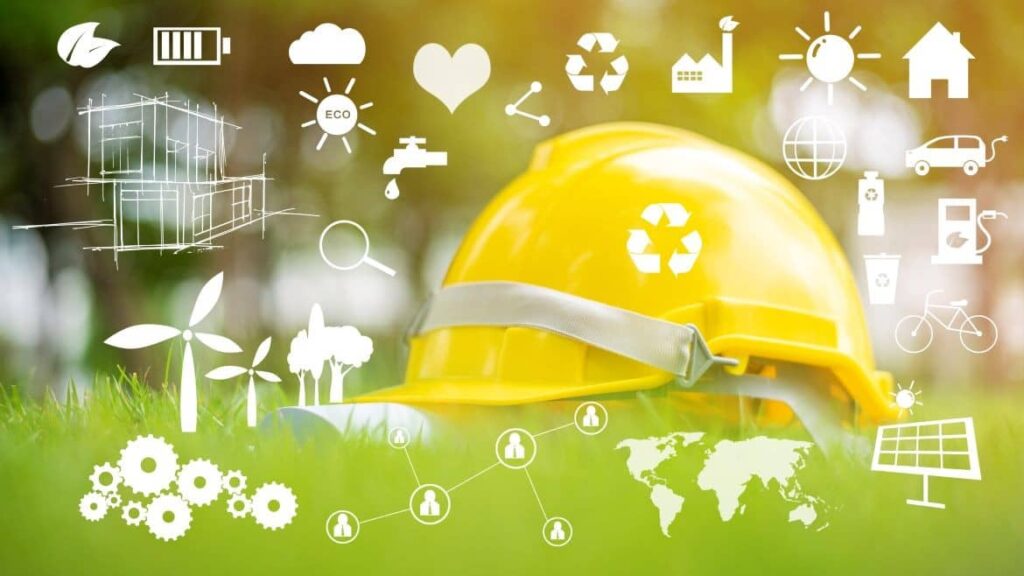The real estate sector in the Middle East is undergoing a paradigm shift, with environmental, social, and governance (ESG) factors gaining prominence. Prominent real estate companies are carefully incorporating ESG principles into their business plans. This approach is reshaping the industry’s future and the urban landscapes in the area.
The United Nations Secretary-General Kofi Annan first proposed incorporating environmental, social, and governance (ESG) factors into investment decisions in January 2004. To create guidelines for integrating ESG issues into capital markets, he invited top financial institutions. The Sustainable Stock Exchange Initiative (SSEI) in 2007 and the Principles for Responsible Investment (PRI), introduced in 2006, were both based on this initiative. To coordinate financial decisions with sustainable practices and societal well-being, these initiatives served as the official launchpad for ESG investing.
Businesses are encouraged by the UNGC to voluntarily adhere to its principles, which take social responsibility, environmental sustainability, and good governance into account. It provides a framework for companies to match their practices to globally accepted standards and further the objectives of sustainable development.
Global real estate companies started integrating ESG factors in response to investor and consumer demand for ethical and responsible practices, as well as rising awareness of environmental and social issues. Stakeholders realized the necessity of sustainable development in the built environment as concerns about climate change grew.
ESG adoption was further accelerated by regulatory pressures such as disclosure requirements and green building standards. Real estate businesses were encouraged to integrate ESG principles into their operations by the financial benefits of ESG, which included reduced risk, cost savings, and increased property values. The global adoption of ESG as a cornerstone of real estate business strategies was fueled by this convergence of factors.
It can be difficult to incorporate ESG practices into procurement procedures, though, especially if major adjustments must be made to the current business procedures. Opposition to the changes could come from suppliers and from within. Finding the holes in one’s system—especially about data quality—is essential to setting the groundwork for a long-term sustainability journey. Prioritizing the improvement of internal processes and capabilities is also crucial.
Introducing ESG principles necessitates a concerted effort to drive change in an area where rapid economic growth has occasionally come at the expense of social inequality and environmental degradation.
For the construction industry, digital transformation or digitalization is essential. It not only aids in streamlining future procedures and enhancing current performance, but it also makes environmental impact mitigation easier. Buildings play a significant role in the world’s energy, water, and greenhouse gas emissions. The integration of environmental sustainability from the project’s inception is made possible by the utilization of technology. Carbon impact measurement instruments support pre-construction evaluations and enable emission reduction plans to be implemented during project implementation.
In its ESG Trends in Construction 2022 report, Deloitte projects an increase in the application of scenario modeling and digital twins—virtual representations of physical objects—to assess decarbonization options. This highlights how innovative project planning and ESG credentials are becoming increasingly important.
Leading the way is Aldar Properties, which has completed data baselines and created a strong Net Zero Action Plan. The company is showcasing its comprehensive approach to sustainability through various initiatives such as improving customer satisfaction scores, funding corporate social responsibility (CSR) programs, hiring more UAE nationals for its corporate workforce, and executing energy management retrofit projects.
Setting sustainability as a top priority helps to protect the natural resources of our planet by drastically lowering project carbon footprints. The region’s economic development has been boosted by rapid economic growth but now is the moment to give sustainable development a top priority to secure a better future for everybody.
The author is the chairman and MD of Colliers’ Middle East Project Leaders, India, and CMD.
